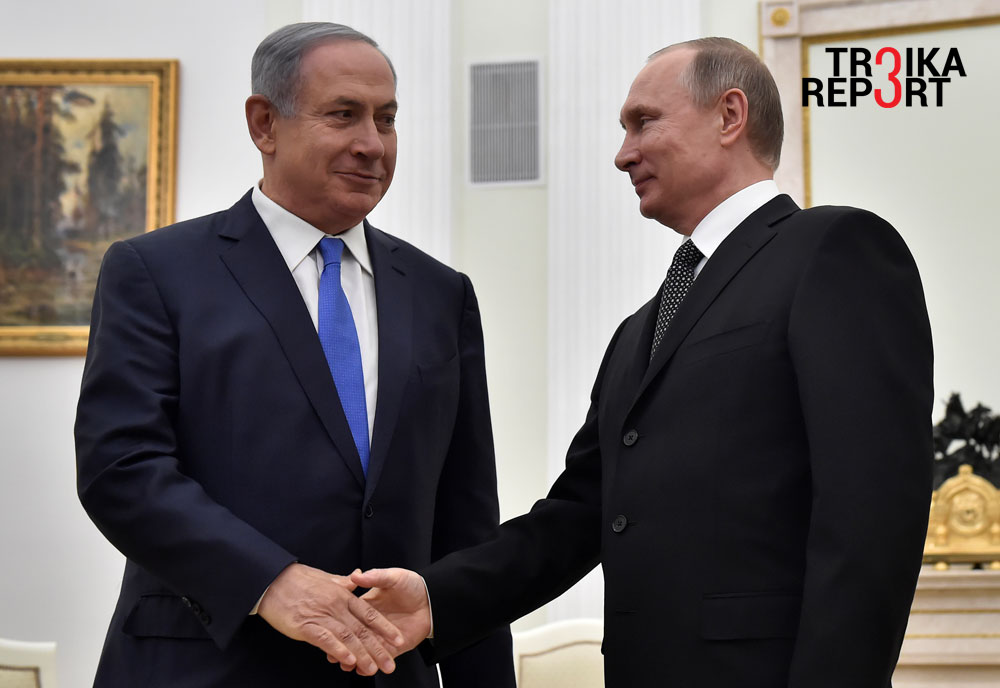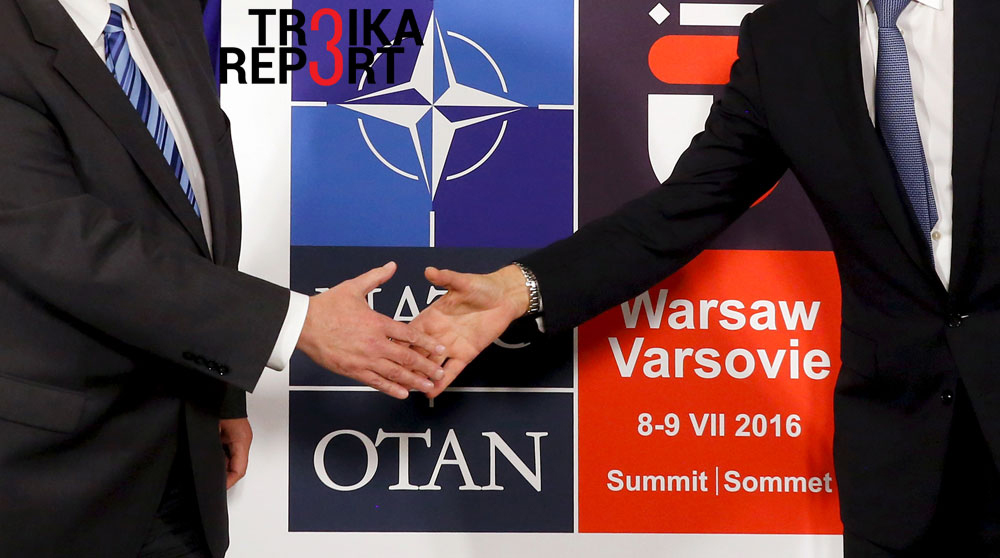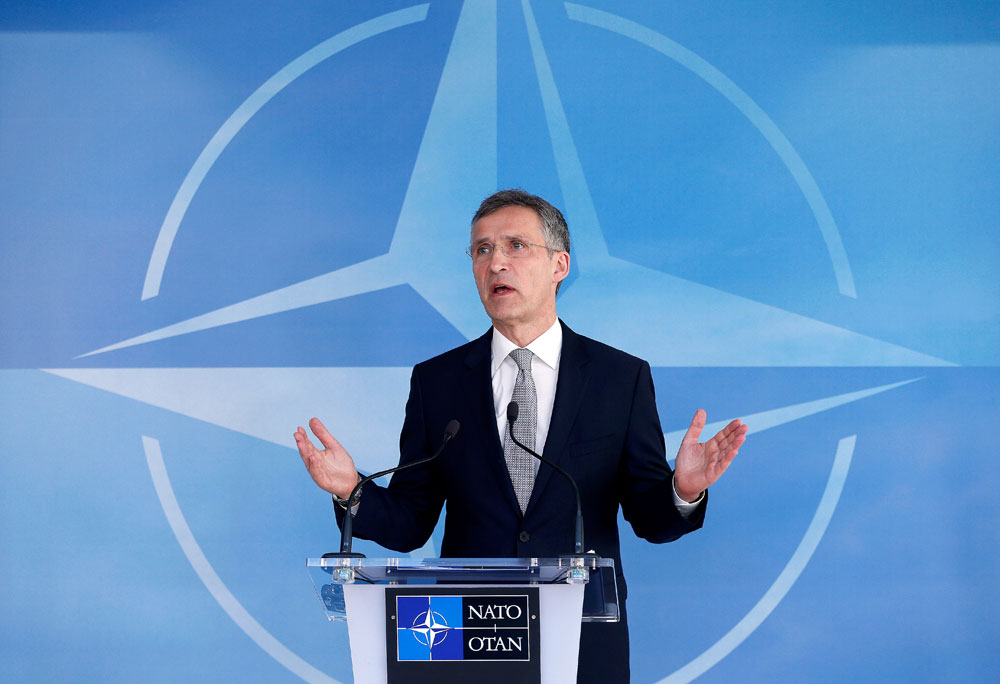For Israeli prime minister, Moscow is no holiday destination

Russian President Vladimir Putin and Israeli Prime Minister Benjamin Netanyahu.
ReutersThe agenda of talks between Russian President Vladimir Putin and Israeli Prime Minister Benjamin Netanyahu, which took place in Moscow on April 21 during the latter’s one-day visit to the Russian capital, was unsurprisingly dominated by the still pervasive regional disorder and persistent unpredictability of the situation in and around Syria.
With emboldened Syrian ruler Bashar Al-Assad now calling the shots and displaying a certain intransigence in what is so far a painfully unproductive inter-Syrian dialogue, Israel is understandably apprehensive about Assad’s beefed up armed forces, now on the offensive.
According to Tel Aviv strategists, there is a fair chance that the diplomatic pressure mounted recently by Syria for a return of the Israeli-occupied Golan Heights (Golan) and a return to the borders of June 1967 might be backed by the threat of a military incursion.
The United Nations regards Golan as part of Syria, which it was prior to the 1967 Six-Day War, when Israel seized the territory. Tel Aviv says property rights to Golan are not up for negotiations. One of the down-to-earth explanations is that occupation of the Golan gives Israel access to the Sea of Galilee, its main source of fresh water.
Bone of contention codenamed S-300
No less worrisome for Israel is the re-activated deal to supply Iran with Russian-made S-300 surface-to-air missile systems.
Netanyahu has repeatedly voiced his refusal to accept the nuclear deal reached in July 2015 on the Iranian nuclear program.
For Israel, he has claimed more than once, Iran poses an “existential threat.” The sales of sophisticated military hardware to the “mullahs” are viewed as a direct menace.
In this case, Russian authorities could have comforted Netanyahu by referring to the defensive character of the S-300, meaning it has no first-strike capability as such.
What counts as a 'good bet'
As for assurances that Syria will be properly pacified and turned into a stable, good-natured neighbor, no one would be bold enough to sign up to such a positive scenario, neither in Moscow, nor anywhere else. At least, for the time being.
But this is not good enough for Israel. As Grigory Kosach, an expert on the politics of the Arab world and professor at the Russian State University for the Humanities, explained to RBTH, this is one of the main motives for the Israeli prime minister’s visit to Moscow this time.
“Take notice: This is the third visit by Netanyahu to Moscow in just six months. The impression is that Russia has failed to provide sufficient reassurances that Israel’s interests will not be affected by the developments in Syria and the region as a whole.
“In fact, the actual influence Moscow enjoys vis-à-vis Damascus is questionable. There is a strong suspicion that Syrian leader is more receptive to signals coming out of Tehran. Then there is the pro-Iran Hezbollah in Lebanon. This doesn’t give comfort to Israel, does it?”
– What is the rationale of coming to Moscow, which does seem to have any influence with Tehran or even with Damascus, as you say?
“Where else? Israel never ceases to forget that it is locked up in a hostile encirclement. It has workable relations with only two Arab nations, Egypt and Jordan. It doesn’t see it as opportune to talk to the United States. The Americans have even less authority to convince and persuade regional powers. This leaves Russia as a good bet.”
Turkish tomatoes substituted by ‘Grown in Israel’
The shape of tomorrow’s economic bilateral relations, although subordinate to the issues of national security due to the “unfinished business” of neutralizing extremists and militants in the region, as well as implementing a formula for resolution of the conflict in Syria, featured on the agenda. One element in this dossier, with a piquant regional context, is worth further scrutiny.
The ruptured economic cooperation between Ankara and Moscow after the downing of the Russian Su-24 jet in November 2015 has created a void due to the abrupt cessation of supplies of food and agricultural produce delivered by Turkish companies. The gap has not yet been filled.
This tempted Israeli Agriculture Minister Uri Ariel to make a statement during his recent visit to Moscow that Israel would be eager and ready to substitute Turkish goods, not limiting the assortment of exports to oranges and tomatoes. Israel is entertaining the idea of providing Russia with the agricultural technologies for which it is justifiably famous.
What are the prospects of making such a leap forward? Can these ambitious plans be substantiated? Igor Abakumov, an expert in agribusiness and an associate professor at the Moscow Timiryazev Agricultural Academy, has visited Israel several times and assessed the potential of this sector at close range. He made this comment for RBTH:
“They can certainly do it. If sales and purchase contracts are signed now, Israel is in position to boost its agricultural production many times over in a matter of just one year. As for high-tech, I was impressed by the way they ensure comfortable ambiance in a barn: Instead of an air conditioner, they disperse water. The liquid ‘dust’ lowers the temperature by at least 10 degrees centigrade. It is an invention of their own. Quite clever.”
– Will the surge in Israeli exports hinder the Russian government’s policy of food import substitution that emerged as a by-product of the Western sanctions?
“Not in the least. This segment of trade developed into a two-way street a long time ago. For example, Israel has been importing Russian lamb, an ecologically unspoiled product because it originates from the region of Kalmykia, which has not yet tasted (fortunately!) the adverse side effects of agricultural chemistry. Moreover, Israel is a steady and solid purchaser of Russian grain[Russia holds 15 percent of the global grain market – RBTH].Israel did not join the Western sanctions.
“On top of it all, the Israeli domestic market is now ready to absorb additional supplies of eggs. Mind you, Russia is a country with eggs! Eggs were one of the three major export commodities provided for European customers in the times of imperial Russia, along with grain and butter. Today, we are back in the game.”
No security guarantees
In sum, Tel Aviv is apparently seeking guarantees from Moscow that neither the current brewing chaos in Syria nor the country’s theoretical resurrection as a unified state presents a threat to the status quo and challenges the national security of Israel.
However, Russia does not seem to have weighty leverage to engage with the leader of the Syrian regime, who is both master of survival and a more or less efficient manager of a patchy nation.
Moscow could make pledges, which it would definitely honor, to deliver additional cargoes of eggs. But it can hardly sign up to promises of a certain type of governance to emerge in Syria after ISIS is defeated and Syrians of all beliefs and convictions enter jointly into the post-civil-war period.
The awkward position Moscow finds itself in when it is approached by regional top politicians of Netanyahu’s status is strangely reminiscent of the words spoken by Thomas More in Robert Bolt's play A Man for All Seasons: “Whatever may be done by smiling, you may rely on me to do.”
The opinion of the writer may not necessarily reflect the position of RBTH or its staff.
Special section: Troika Report>>>
Subscribe to get the hand picked best stories every week
All rights reserved by Rossiyskaya Gazeta.
Subscribe
to our newsletter!
Get the week's best stories straight to your inbox

